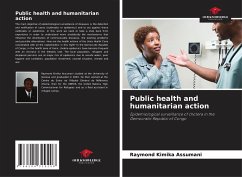The main objective of epidemiological surveillance of diseases is the detection and notification of cases (outbreaks or epidemics) and to act against these outbreaks or epidemics. In this work we seek to take a step back from experience in order to understand more analytically the mechanisms that influence the distribution of communicable diseases, the existing problems and possible alternatives. How are the health actions of the Uvira Health Zone coordinated with all the stakeholders in this fight? In the Democratic Republic of Congo, in the health zone of Uvira, cholera epidemics have become frequent with an increase in the lethality rate. The local population, refugees and displaced persons are at major risk of epidemics due to unsafe water, poor hygiene and sanitation, population movement, coastal situation, climate and war.








